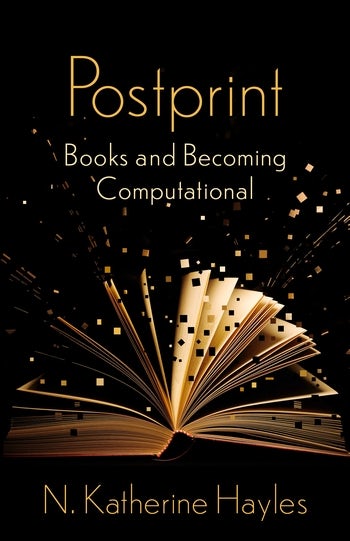Reading N. Katherine Hayles’s Postprint: Books and Becoming Computational from 2021.
Is it postprint? Sure. Is it postbook? Mmmm... not so much perhaps.
For some postprint examples that are using computational media to also push toward becoming postbook, see:
Liquid books: http://liquidbooks.pbwiki.com/
Living Books About Life: http://www.livingbooksaboutlife.org/
Photomediations: An Open Book: http://photomediationsopenbook.net/
Combinatorial Books: Gathering Flowers: http://www.openhumanitiespress.org/books/titles/ecological-rewriting/
More: https://linktr.ee/maskedmedia1
#books #book #computers
#theory #philosophy #literature #publishing #print #digital #digitalhumanities
